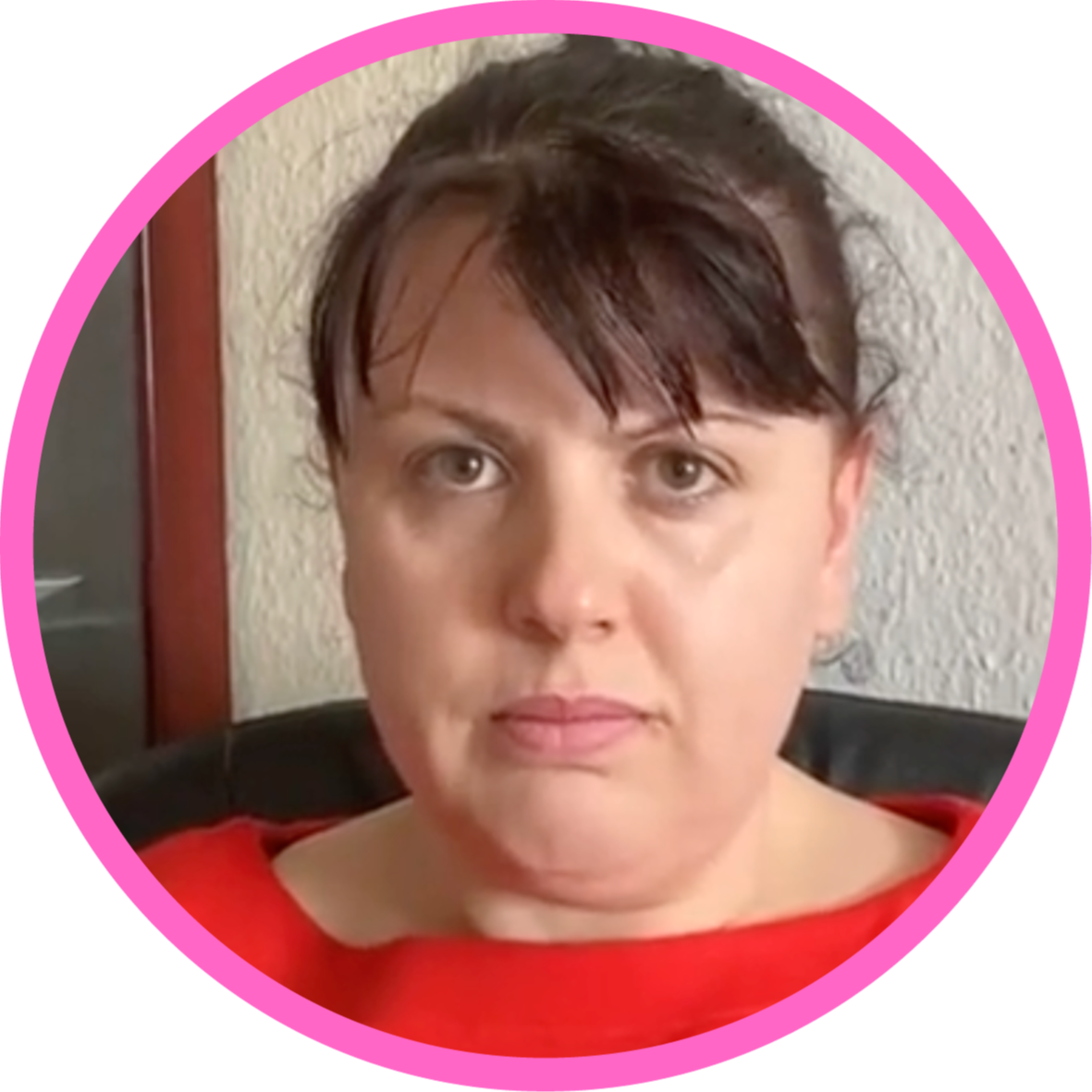How to Become a Confident English Speaker (especially for women)

Being a confident English speaker is the aim for most of my students. But how? Here is my list of things you need to work on to achieve that.
Confidence
There are two kinds of confidence- the one that others can see and the one you feel inside yourself, self-confidence. I often get students telling me – Teacher I’m not a very confident person. So, I don’t feel very comfortable talking to others in English.
You can’t become a confident English speaker if you believe that you’re not a confident person. So, you need to work on that one first. But, do you know the great news?
Confidence is a skill you can learn. I was never the most confident person in the room, but I’ve learned along the way that people are not born confident, you work on it. Looking at myself a few years back, I would have never thought of having a YouTube channel or a business or anything that required me to show up in front of big audiences. It would have caused me a lot of sleepless nights just thinking about it. I would have given you a million reasons why it was not a good idea, or why I couldn’t do it. And that’s not because my skillset was different, but my mindset.

You see, we can fake on the confidence other people see. Ladies, put a nice pair of heels on, a nice dress, pull a powerful woman posture and bam, done! You will look like the most confident lady in the room. But is that enough? Of course not, because as soon as you are put into the position of having to do something, like speak English, your doubts, your fears and second thoughts will kick in. What if I say it wrong? Will they think I’m stupid if I make a lot of mistakes? Are they going to think I don’t even deserve the post I have in my job because of how bad my English is? Will it ruin the chances for a promotion?
So, to become a confident English speaker, you need to work on your self-confidence first. But how do you do that?
Remember your first day at work, when you walked into the building and your knees were shaking, you were second-guessing your choice of outfit, shoes, hairstyle and everything else because you felt out of your comfort zone. Then, a few weeks, months down the line you walk through that building as if you own the whole building and you don’t really pay attention to others looking at you anymore.
The same happens to some ladies when they join our speaking program. At first, they are very self-aware, reserved and doubting everything that comes out of their mouth, trying so hard not to make mistakes that might make them look silly, and within a few weeks, I can feel their self-confidence growing as they build their vocabulary, get the idea that other people understand you even if you make a few mistakes along the way and actually enjoy the speaking process.
And this is a very important point. During your English learning journey at school, when did you have the chance to speak?
In my school, the answer would be" When the teacher wanted to test my speaking skills". So, speaking caused me to feel nervous, judged, because every word that was coming out of my mouth was going to decide my grade for the year. Do you relate to that?
How about an English course you’ve been to recently? When did you have a chance to speak? – Does anyone has a question? ( doesn’t count) There are only 1-2 students in a class who enjoy speaking after this question.
So, here is my point. It’s very important to enjoy speaking in English. Because that’s how your confidence grows.
Build vocabulary on what’s important to you first
Just the other day my student said to me” teacher you were right, I feel very confident when I talk about things, I have enough vocabulary to talk about. This is a student who’s been learning with me for less than 2 months and believed that she couldn’t have a conversation in English at all. What happened? Showing up every day, building her vocabulary on things she wanted to say, helped her build her confidence. Because she has studied psychology, she has learned a lot of vocabulary related to her interests so now she feels she could talk about it confidently. So, my advice here would be – build your vocabulary on things that are important for you to know right now. Do you have kids at school, but you don’t know how to speak English to their teachers? Work on that. Are you working in an international company, but you never join in conversations with your colleges during the lunch break? Build vocabulary on everyday topics, interests, hobbies, day to day conversations.
Make a list of phrases and expressions, even full sentences, questions you might want to ask, or how would you answer certain questions, practice them again and again and again. That will bust your confidence and your self-esteem because next time you are engaged in a conversation, and you can answer back and ask questions and keep the conversation going that’s when the magic happens. Because now you start believing that you can be a confident English speaker and you got a taste of it. It felt good. And that would be a great motivation to keep you learning and improving every day.
So, this leads me to my next point.

Motivation
Motivation is the key to any achievement. But where do you find it? IN your GOAL. What is your goal? What are you trying to achieve through English? Our Motto at English for ladies is – Empower yourself through English, so think, how will English empower you? What could English help you achieve? How would it change your life? Have a crystal-clear goal! See it in your mind’s eye and just think for a minute how would you feel if that was true right now? Excited! Use that positive energy and keep going. So, use your motivation to fuel your desire to learn English. English learning is not a punishment. So, eyes on the prize and enjoy the process on the way there.
Be open-minded
Do not start a course or even self-studying with the belief that it won’t work. I’ve tried so many times before and it didn’t, so what has changed this time? Well, your mindset. If you start something believing it won’t work, it won’t! Because human beings are so good at sabotaging ourselves and sadly a lot of students want to prove the teachers wrong or their product or their teaching techniques are not the best ones. If you start learning that way, don’t bother. You are focusing all your energy on the negatives and there will be no joy, no curiosity left and that’s not how a language should be learned. I tell my students that the only way my lesson won’t work is if they don’t want them to. I’m not a magician, I don’t wave the magic stick and make you speak English, but even if I did, I would still ask you to believe in magic for it to work. So, believe in the process and understand that nothing happens overnight. It’s going to take time and afford, but it will all be worth it in the end.
Practice
As I mentioned in the beginning, confidence is a skill that can be learned, but it’s not something you learn in books. Skills need practice. Think about something you’re good at! Were you good the first time you tried doing it? It took practice for sure. Becoming a confident English speaker is only possible through practice, the chance to express yourself, but not just about the text in the book, or the activity you find super boring and have nothing to say, but talking about things you love and feel passionate about.
This is why at English-Everyday for ladies program we have speaking lessons every single day. The ladies in our program have a chance to talk to a professional teacher like myself and international ladies from our program. Our lessons are designed to help them enjoy a conversation about interesting things, we share experiences as we talk about traveling abroad, we share recipes when we have a lesson related to food or cooking, we laugh with each other’s funny stories and we shock each other with cultural differences. They love it and I love seeing their progress and I can’t wait to see them achieving their goals and dreams as they become the confident English speakers they always wanted to be.
So, to sum it all up to become a confident English speaker you need to
- Start speaking English as soon as you can, no matter the level that you’re at. Because if confidence is a skill and a skill requires a lot of practice, the sooner you start the quicker you get there.
- Stop translating! Instead of translating the expressions, you use in your language, which doesn’t always make sense, learn phrases you can use in different situations, have some questions and some answers ready to keep you engaged in a conversation. And remember the answer is in the question, so spend some time learning how to make correct questions in English, because that’s the first thing I teach my students and that is a game-changer.
Have you been on holiday recently?
Yes, I have been on holiday.
Are you coming to the party after work?
Yes, I’m coming to the party after work.
Pay close attention to the question and give a full answer
- Don’t worry too much about your grammar mistakes. People can tell when you’re trying so hard not to make mistakes and that makes you slow down, it stops the flow of the conversation and makes it unpleasant, so nor or the other speaker will be in that conversation for long.
- Explore different ways of learning- listen to a podcast on the way to work, or while doing housework, read something in English regularly, watch TV shows in English to learn everyday phrases, find a music band you love and listen to their songs on repeat. They all require little effort but can help you get great results.

























